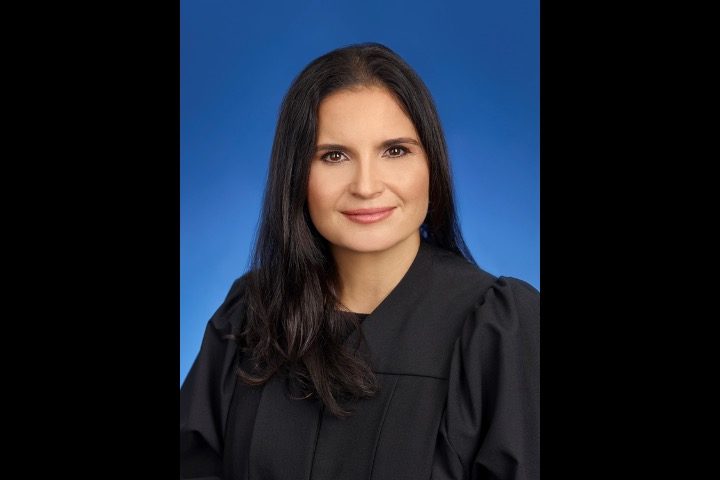
Mainstream media outlets are pointing out errors made in a prior case by the federal judge who is presiding in Donald Trump’s classified documents case — errors that they argue may have invalidated that earlier case. But is the media’s concern for the judge’s past performance sincere, or is there an agenda behind it?
The judge in question, Aileen Cannon, was appointed to the court in late 2020 by Trump and previously ruled favorably for him in 2022, ordering the U.S. government to pause its use of materials seized from Trump’s Mar-a-Lago home.
Thus, a question arises: Is the reason the media is questioning Cannon’s aptitude that they fear she will not be as antagonistic against the 45th president as they would like?
A number of outlets this week ran stories about Cannon’s actions during a case from earlier this year. Among them were Reuters and CNBC. A piece at NBC News is titled “Aileen Cannon, the judge in the Trump documents case, made multiple errors in an earlier trial.”
The story’s subtitle reads, “One of the errors violated a fundamental constitutional right of the defendant and could have invalidated the proceedings, according to legal experts and a court transcript.”
The reporting from the mainstream outlets revolves around a June trial in which Cannon allegedly violated the defendant’s right to public trial, as enshrined in the Sixth Amendment to the Constitution, by closing the jury selection process to the defendant’s family and to the general public. The Sixth Amendment reads that defendants have a right to a public trial.
Cannon also failed to swear in the prospective jury pool, which resulted in the court having to restart the selection process.
The case involved a man charged by federal prosecutors with running a website featuring images for child sexual abuse. The defendant ultimately pleaded guilty as part of a deal with prosecutors. Cannon’s critics say her mistakes may have made the trial invalid.
For example, Stephen Smith, a professor at the Santa Clara School of Law in California, told NBC News that Cannon’s closing of the courtroom was a “fundamental constitutional error.”
“She ignored the public trial right entirely. It’s as though she didn’t know it existed,” Smith said.
NBC News further highlighted remarks from “legal experts” who argued that closing the courtroom to the public has been designated a “structural error” by the U.S. Supreme Court — an error so serious it can invalidate a trial.
“A lack of experience can be really hard in a big case, especially when there’s all this media attention and everything you do is being watched and commented on and second-guessed,” said former federal judge Jeremy Fogel, who now leads the Berkeley Judicial Institute in California.
NBC included a subsection in their article titled “Limited Experience,” written in a way to make it seem that Cannon is unfit for the job of presiding over a historic trial involving a U.S. president who is once more running for office.
Per NBC:
As a judge, Cannon so far has presided over four criminal trials that resulted in jury verdicts. She previously also worked on four criminal trials that resulted in jury verdicts when she served [as] a federal prosecutor from 2013 to 2020, according to a questionnaire she filled out before the Senate confirmed her as a judge.
Cannon faced a rebuke from the Atlanta-based 11th U.S. Circuit Court of Appeals when it reversed her 2022 order appointing a third party to review documents seized by the FBI from Trump’s Mar-a-Lago resort home in Florida in the classified records investigation.
“We cannot write a rule that allows any subject of a search warrant to block government investigations after the execution of the warrant. Nor can we write a rule that allows only former presidents to do so,” the 11th Circuit panel of three judges — all Republican appointees — wrote in reversing Cannon’s ruling and ordering the dismissal of a lawsuit filed by Trump that sought to shield documents from federal investigators.
Cannon, 42, was born in Cali, Colombia, to an American father and a Cuban mother — who fled the country as a young girl amid the Cuban Revolution in the 1950s. Cannon completed her undergraduate at Duke and received her Juris Doctor from the University of Michigan Law School.
Since 2005, Cannon has been a member of the Federalist Society. Trump nominated her to serve as a United States district judge of the United States District Court for the Southern District of Florida at the request of U.S. senators Marco Rubio and Rick Scott, both Republicans. She was confirmed in November of 2020.
Cannon heard the civil case Trump v. United States, in which Trump sought the appointment of a special master to review materials seized on August 8, 2022 during the FBI search of Mar-a-Lago.
She granted Trump’s request, ordering the DOJ to release the previously sealed list of seized materials and to halt its review of all materials seized. The DOJ appealed the ruling, which was reversed by the 11th Circuit Court of Appeals.
Cannon ultimately dismissed the case for lack of jurisdiction. It was out of the document seizure at the center of that civil case that the current criminal case against Trump arose — and Cannon is once more presiding.




















































